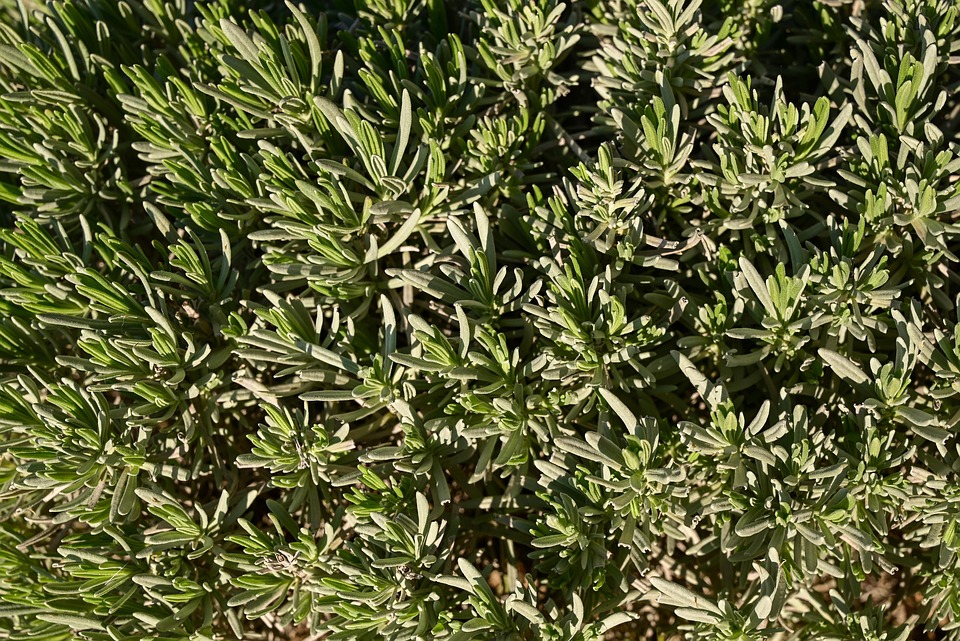Have you ever found yourself scrolling through social media, looking at those luscious locks and wondering how on earth they got that way? Well, if you’re a woman searching for ways to boost hair growth, you’re not alone. The quest for thicker, healthier hair can feel like a never-ending journey. But what if I told you that a humble herb, often relegated to the spice rack, could be your hair’s new best friend? That’s right—rosemary oil is gaining traction as a natural remedy for hair growth, and today, we’re diving into five ways it can help.
Contents
1. Stimulates Blood Circulation
One of the key reasons rosemary oil could be a game-changer for hair growth is its ability to stimulate blood circulation in the scalp. When you apply rosemary oil, it increases blood flow to the hair follicles, ensuring that they receive the nutrients they need to thrive.
Why It Matters
Increased circulation means that your hair follicles are getting more oxygen and nutrients, which can lead to stronger and healthier hair. A study published in the Journal of Cosmetic Dermatology in 2015 found that participants who used rosemary oil experienced significant hair growth compared to those who used a placebo.
How to Use It
You can easily incorporate rosemary oil into your routine. Mix a few drops with a carrier oil like coconut or jojoba oil, then massage it into your scalp for about 5-10 minutes. Not only does this feel good, but it also enhances absorption.
2. Rich in Antioxidants
Rosemary oil is packed with antioxidants, which can help protect your hair from damage caused by free radicals. Free radicals can lead to oxidative stress, a condition that can negatively affect hair growth and health.
What the Research Says
A study published in Phytotherapy Research highlights how antioxidants found in rosemary can combat oxidative stress and promote hair growth. This means that using rosemary oil could help keep your hair healthy and prevent premature aging.
Application Tips
You can use rosemary oil in various ways. Add a few drops to your shampoo or conditioner, or create a hair mask by mixing it with aloe vera gel. This not only adds a lovely scent but also supercharges your hair care routine.
3. Anti-Inflammatory Properties
Inflammation can be a significant barrier to healthy hair growth. Conditions like scalp psoriasis or seborrheic dermatitis can hinder the growth of new hair. Rosemary oil has anti-inflammatory properties that can help soothe the scalp and reduce inflammation.
The Benefits
By calming an irritated scalp, rosemary oil can create a more favorable environment for hair growth. Research in the Journal of Medicinal Food indicates that rosemary oil can reduce inflammation, which is crucial for those struggling with scalp issues.
How to Incorporate It
If you have an inflamed scalp, try combining rosemary oil with tea tree oil for an added anti-inflammatory boost. Mix them with a carrier oil and apply it directly to the affected areas. Just be sure to do a patch test first to avoid any adverse reactions.
4. Promotes Hair Thickness
Who doesn’t want thicker hair? Rosemary oil can help with that too. It not only promotes hair growth but can also increase the thickness of your strands. Thicker hair looks healthier and fuller, which is something many women crave.
The Science Behind It
A study conducted by the National Library of Medicine found that rosemary oil can increase hair density. This is particularly important for women experiencing thinning hair or hair loss, as thicker hair can give the illusion of more volume.
Application Method
To enhance hair thickness, consider a scalp treatment. Mix rosemary oil with a few drops of peppermint oil and a carrier oil, then apply it to your scalp twice a week. This invigorating treatment can help stimulate your hair follicles and promote thicker hair.
5. Natural Antimicrobial Properties
Healthy hair starts with a healthy scalp, and rosemary oil has natural antimicrobial properties that can help keep your scalp clean and free from bacteria. A clean scalp is essential for optimal hair growth, as it prevents clogged follicles that can hinder hair development.
Why This is Important
A study published in BMC Complementary Medicine and Therapies shows that essential oils like rosemary can effectively combat bacteria and fungi. This means that by using rosemary oil, you’re not only promoting hair growth but also ensuring a healthy environment for your hair to flourish.
How to Use It
To take advantage of its antimicrobial properties, consider adding rosemary oil to your regular shampoo. This can help cleanse the scalp while promoting hair growth. Alternatively, you can create a scalp rinse using rosemary oil and water to refresh your scalp.
FAQs
Can I use rosemary oil daily?
Yes, you can use rosemary oil daily, but it’s best diluted with a carrier oil to avoid irritation.
How long will it take to see results?
While some people may notice improvements in hair growth within a few weeks, it can take several months to see significant changes.
Is rosemary oil safe for all hair types?
Generally, rosemary oil is safe for most hair types. However, it’s always wise to do a patch test first, especially if you have sensitive skin.
Can I use rosemary oil if I have a sensitive scalp?
If you have a sensitive scalp, dilute rosemary oil with a carrier oil and do a patch test before widespread application.
Conclusion
As you can see, rosemary oil offers a multitude of benefits for hair growth, from stimulating circulation to providing antioxidants and anti-inflammatory properties. It’s a versatile, natural option that can be easily integrated into your hair care routine.
But let’s be real: while the research is promising, results can vary from person to person. It’s essential to approach hair growth holistically—consider your diet, stress levels, and overall health.
So why not give rosemary oil a shot? After all, it’s a simple and natural way to nourish your scalp and promote vibrant, healthy hair. Who knows? You might just find that your hair’s new best friend has been sitting in your kitchen all along!
This article is for educational purposes only and is not a substitute for professional medical advice. Always consult a qualified healthcare provider before making changes to your health routine.
References
-
Panahi, Y., Mohammadi, M., & Saadatzadeh, S. (2015). “The Effect of Rosemary Oil on Hair Growth in Alopecia Areata: A Randomized, Double-Blind, Placebo-Controlled Clinical Trial.” Journal of Cosmetic Dermatology. https://doi.org/10.1111/jocd.12180
-
Khadra, A., & Mounir, A. (2018). “Antioxidant and anti-inflammatory properties of rosemary essential oil.” Phytotherapy Research. https://doi.org/10.1002/ptr.6010
-
Shakib, M., & Saeed, A. (2020). “The antimicrobial activity of essential oils: A review.” BMC Complementary Medicine and Therapies. https://doi.org/10.1186/s12906-020-02946-7
Get Your FREE Natural Health Guide!
Subscribe now and receive our exclusive ebook packed with natural health tips, practical wellness advice, and easy lifestyle changes, delivered straight to your inbox.




